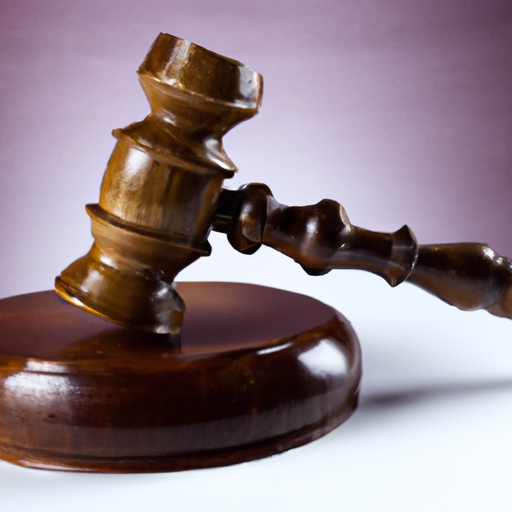Are you dealing with the aftermath of a recent accident? Whether it was a car collision, a slip and fall incident, or any other type of personal injury, you don’t have to navigate the legal process alone. With the help of an experienced accident attorney like Jeremy Eveland, you can have peace of mind knowing that your rights and best interests are being protected. In this article, we will delve into the various aspects of working with an accident attorney, from understanding the importance of prompt action to finding the right professional to handle your case. So, if you’re ready to take the next step towards seeking the compensation and justice you deserve, keep reading and discover how an accident attorney can be your strongest advocate.
What is an Accident Attorney?
An accident attorney is a legal professional who specializes in handling cases related to personal injuries and accidents. They have extensive knowledge and experience in the field of personal injury law, allowing them to represent individuals who have been injured due to the negligence or wrongdoing of others. accident attorneys work diligently to ensure that their clients receive the compensation they deserve for their injuries, medical expenses, pain and suffering, and other related damages.
Definition
An accident attorney is a lawyer who provides legal representation to individuals who have been injured in accidents caused by the negligence of another person or entity. They handle a wide range of personal injury cases, including car accidents, Motorcycle accidents, truck accidents, workplace accidents, and more. Accident attorneys have a deep understanding of personal injury laws and regulations, and they use their expertise to advocate for their clients and help them navigate the legal process.
Role and Responsibilities
The primary role of an accident attorney is to protect the legal rights of their clients who have been injured in accidents. They handle all aspects of the legal process, from investigating the accident and gathering evidence to negotiating with insurance companies and representing their clients in court, if necessary. Some of the key responsibilities of an accident attorney include:
-
Providing legal advice and guidance: Accident attorneys help their clients understand their legal rights and options, and provide guidance on the best course of action to take.
-
Investigating the accident: Accident attorneys thoroughly investigate the circumstances of the accident by reviewing police reports, medical records, witness statements, and other relevant evidence.
-
Gathering evidence: To build a strong case, accident attorneys gather evidence such as photographs, video footage, and expert opinions to prove fault and establish negligence.
-
Negotiating with insurance companies: Accident attorneys engage in negotiations with insurance adjusters to secure a fair settlement for their clients. They have the necessary expertise to navigate the complex process of dealing with insurance companies and maximize their clients’ compensation.
-
Representing in court: If a fair settlement cannot be reached through negotiations, accident attorneys are prepared to take the case to court and represent their clients during the trial process.
-
Providing support and guidance: Throughout the entire legal process, accident attorneys offer support and guidance to their clients, ensuring they are well-informed and comfortable with each step.
When to Hire an Accident Attorney
Determining whether or not to hire an accident attorney can be a crucial decision, as it can greatly impact the outcome of your case. While not every accident requires legal representation, there are certain scenarios where hiring an accident attorney is highly recommended.
Determining the Need
If you have been injured in an accident and are unsure whether you should consult with an accident attorney, here are some factors to consider:
-
Severity of injuries: If you have sustained significant injuries that require medical treatment, hospitalization, or long-term care, hiring an accident attorney can help ensure that you receive the necessary compensation to cover your medical expenses and any future treatment.
-
Fault and liability issues: If there are disputes or uncertainties regarding who was at fault for the accident, an accident attorney can conduct a thorough investigation to establish liability and prove negligence.
-
Complex legal processes: Dealing with insurance companies and navigating the legal system can be complex and overwhelming. An accident attorney has the knowledge and experience to handle all the legal aspects of your case, allowing you to focus on your recovery.
Common Scenarios
While every accident case is unique, there are several common scenarios where hiring an accident attorney is highly recommended:
-
Car accidents: Car accidents can result in serious injuries and property damage. An accident attorney can help you navigate the complex insurance claims process, negotiate with insurance companies, and seek compensation for your injuries.
-
Motorcycle accidents: Motorcycle accidents often result in severe injuries due to the lack of protection. Accident attorneys who specialize in motorcycle accidents understand the unique challenges faced by motorcycle riders and can advocate for your rights.
-
Truck accidents: Accidents involving large trucks or commercial vehicles can be particularly devastating. Accident attorneys who specialize in truck accidents are well-versed in the federal regulations that govern the industry and can help determine liability and seek appropriate compensation.
Benefits of Hiring
There are numerous benefits to hiring an accident attorney, including:
-
Legal expertise: Accident attorneys have in-depth knowledge of personal injury laws and regulations. They can navigate the legal system on your behalf and ensure that your rights are protected.
-
Maximized compensation: Accident attorneys understand the true value of your case and can help you obtain the maximum amount of compensation for your injuries, damages, and losses.
-
Reduced stress and burden: Dealing with the aftermath of an accident can be emotionally and physically draining. By hiring an accident attorney, you can focus on your recovery while they handle all the legal aspects of your case.
-
Better negotiation outcomes: Accident attorneys are skilled negotiators who can advocate for your rights and negotiate with insurance companies to ensure you receive a fair settlement offer.
Choosing the Right Accident Attorney
Choosing the right accident attorney is crucial to the success of your case. With numerous attorneys to choose from, it is important to consider several factors and conduct thorough research before making your decision.
Factors to Consider
When selecting an accident attorney, you should consider the following factors:
-
Experience: Look for an attorney who has extensive experience in handling accident cases similar to yours. An experienced attorney will have a deep understanding of the legal process and be better equipped to handle your case effectively.
-
Reputation: Research the attorney’s reputation and track record. Read client reviews, testimonials, and online ratings to get a sense of their credibility and success rate.
Researching and Evaluating
To find potential accident attorneys, consider the following methods:
-
Recommendations: Ask friends, family, or colleagues for recommendations. Personal referrals can provide valuable insights and help you find trustworthy attorneys.
-
Online directories: Utilize online directories and databases that specialize in lawyer referrals to find a list of accident attorneys in your area.
-
Initial consultations: Schedule initial consultations with several attorneys to discuss your case and evaluate their expertise, communication style, and overall fit for your needs.
Questions to Ask
During the initial consultation, it is important to ask relevant questions to help you make an informed decision. Here are some important questions to ask when meeting with an accident attorney:
- What is your experience in handling accident cases like mine?
- How will you communicate with me and keep me updated on the progress of my case?
- Have you taken cases to trial before? What were the outcomes?
- How do you charge for your services? Is it on a contingency fee basis?
By asking these questions and discussing your concerns, you can gain a better understanding of the attorney’s capabilities and determine whether they are the right fit for your case.
Initial Consultation with an Accident Attorney
The initial consultation with an accident attorney is an important step in the legal process. It provides an opportunity for you to discuss your case, ask questions, and determine whether the attorney is the right fit for your needs. To make the most of your consultation, it is important to be prepared and ask important questions.
Preparing for the Consultation
Before meeting with an accident attorney for an initial consultation, it is helpful to gather and organize any relevant documents and information related to your case. This may include:
- Police reports and accident records
- Medical records, bills, and treatment plans
- Insurance policies and correspondence
- Correspondence with the at-fault party or their insurance company
- Any photographs or videos of the accident scene or your injuries
Having these documents readily available will allow the attorney to evaluate the strength of your case and provide you with accurate advice.
Important Questions to Ask
During the initial consultation, it is important to ask the following important questions to gain a better understanding of the attorney’s expertise and approach:
- Do you specialize in handling accident cases?
- Have you handled cases similar to mine before? What were the outcomes?
- What is the potential value of my case?
- How long do you anticipate my case will take?
By asking these questions, you can assess the attorney’s experience, track record, and their opinion on your case’s potential outcomes. This will help you make an informed decision about whether to move forward with hiring them.
Types of Accident Cases Handled by Attorneys
Accident attorneys handle a wide range of personal injury cases, each requiring specialized knowledge and expertise. They use their legal skills to advocate for their clients and seek justice and compensation for the injuries they have suffered. Some of the most common types of accident cases handled by attorneys include:
Car Accidents
Car accidents are one of the most common types of accidents that result in personal injuries. Whether it is a minor fender-bender or a severe collision, an accident attorney can help you understand your legal rights, negotiate with insurance companies, and pursue compensation for your injuries, property damage, and other losses.
Motorcycle Accidents
Motorcycle accidents often result in catastrophic injuries due to the lack of protection for riders. Accident attorneys who specialize in motorcycle accidents have a deep understanding of the unique challenges faced by motorcyclists and can help you gather evidence, establish liability, and seek compensation for your injuries and damages.
Truck Accidents
Accidents involving large trucks or commercial vehicles can have devastating consequences. Accident attorneys who handle truck accident cases are well-versed in the federal regulations that govern the trucking industry and can help you navigate the complex legal process to seek compensation for your injuries, lost wages, and other damages.
Bicycle and Pedestrian Accidents
Bicycle and pedestrian accidents can result in serious injuries and even fatalities. An accident attorney can help you understand the legal options available to you and assist you in filing a claim against the responsible party, whether it is a driver, a construction company, or a government entity.
Workplace Accidents
Accidents that occur in the workplace can result in significant injuries and financial hardship. Accident attorneys who specialize in workplace accidents understand the complex laws and regulations surrounding workers’ compensation and can help you navigate the claims process to ensure you receive the benefits you are entitled to.
Medical Malpractice
medical malpractice cases arise when a healthcare professional’s negligence causes harm to a patient. Accident attorneys who specialize in medical malpractice understand the complex medical and legal issues involved and can help you hold negligent healthcare providers accountable and seek compensation for your injuries and damages.
Product Liability
Product liability cases involve injuries and damages caused by defective products. Accident attorneys who handle product liability cases are knowledgeable in product safety laws and can help you determine liability and seek compensation from the manufacturer, distributor, or retailer responsible for the defect.
Premises Liability
Premises liability cases arise when injuries occur on someone else’s property due to hazardous conditions or negligence. Accident attorneys who specialize in premises liability cases can help you establish liability, gather evidence, and pursue compensation from the property owner or manager.
By working with an accident attorney who has experience in your specific type of accident case, you can ensure that your rights are protected, and you receive the compensation you deserve.
Proving Fault and Negligence in an Accident Case
In order to successfully pursue a personal injury claim, it is crucial to establish fault and negligence on the part of the responsible party. Accident attorneys employ various strategies to gather evidence and build a strong case. Here are some key methods used to prove fault and negligence in an accident case:
Gathering Evidence
Accident attorneys thoroughly investigate the circumstances surrounding the accident to gather evidence that supports their client’s claim. This may include:
-
Police reports: The attorney will review the police report filed at the scene of the accident, which often contains important details, statements, and eyewitness accounts.
-
Medical records: The attorney may review medical records and consult with medical professionals to establish a connection between the accident and the injuries sustained.
-
Photographs and videos: Visual evidence, such as photographs and videos of the accident scene, damage to vehicles, or injuries, can be compelling evidence when establishing fault.
Investigating the Accident Scene
Accident attorneys often hire accident reconstruction experts to investigate the accident scene and recreate the events leading up to the incident. These experts analyze physical evidence, skid marks, road conditions, and any other relevant factors to determine how the accident occurred and who may be at fault.
Witness Statements
Witness statements play a crucial role in proving fault and negligence in an accident case. Accident attorneys interview witnesses and gather their statements, which can provide valuable insight into the accident and help establish liability.
Expert Witnesses
In complex accident cases, accident attorneys may call upon expert witnesses to provide professional opinions and analysis. These experts may include accident reconstruction specialists, medical professionals, economists, or other industry professionals who can provide insight into the circumstances surrounding the accident and support the client’s claims.
By employing these strategies and utilizing the expertise of various professionals, accident attorneys work to establish fault and negligence, ultimately strengthening their client’s case and increasing the likelihood of a favorable outcome.
Compensation in an Accident Case
One of the primary objectives of an accident attorney is to help their clients secure the compensation they deserve for their injuries, damages, and losses. Compensation in an accident case can vary depending on the specific circumstances, but it generally falls into several categories:
Types of Compensation
-
Medical expenses: Accident victims are entitled to compensation for their past, present, and future medical expenses resulting from the accident. This may include hospital bills, surgeries, rehabilitation, medication, and ongoing treatment.
-
Lost wages: If the accident caused you to miss work, resulting in lost wages, an accident attorney can help you pursue compensation for the income you would have earned if not for the accident.
-
Pain and suffering: Accidents can cause physical pain, emotional distress, and a diminished quality of life. Accident attorneys seek compensation for their clients’ pain and suffering, aiming to provide them with the financial means to address their emotional and physical hardships.
-
Property damage: If your vehicle or other personal property was damaged in the accident, an accident attorney can help you pursue compensation for the cost of repairs or replacement.
Calculating Damages
Accident attorneys work closely with their clients to determine the full extent of their damages and losses. They take into account factors such as medical bills, the impact on daily life, lost wages, future medical needs, and pain and suffering to calculate the appropriate amount of compensation to seek.
Negotiating with Insurance Companies
Insurance companies may attempt to settle a claim quickly and for a low amount. An accident attorney is skilled in negotiating with insurance adjusters to ensure their clients receive a fair settlement offer. They use their knowledge of personal injury laws and their client’s damages to advocate for maximum compensation.
Taking the Case to Trial
If a fair settlement cannot be reached through negotiations, an accident attorney is prepared to take the case to trial. They will present the evidence, arguments, and expert testimonies necessary to convince a judge or jury of the responsible party’s liability and secure the compensation their client deserves.
In all stages of the legal process, accident attorneys are dedicated to fighting for their clients’ rights and pursuing the compensation they need to move forward after an accident.
The Legal Process of an Accident Case
Navigating the legal process of an accident case can be complex and time-consuming. Accident attorneys guide their clients through each phase, ensuring they understand their rights, options, and responsibilities. Here is an overview of the legal process involved in an accident case:
Filing a Lawsuit
The legal process typically begins with the filing of a lawsuit, which outlines the facts of the accident, the injuries sustained, and the legal grounds for seeking compensation. The lawsuit is served to the responsible party, who then has a specified amount of time to respond.
Discovery Phase
The discovery phase involves the exchange of information between the parties involved in the lawsuit. Both sides gather evidence, conduct depositions, and submit interrogatories to obtain a clear understanding of the strengths and weaknesses of their respective cases.
Settlement Negotiations
Once the discovery phase is complete, the parties may engage in settlement negotiations. Accident attorneys use their negotiation skills and knowledge of the case’s value to advocate for a fair settlement on behalf of their clients. If a settlement agreement is reached, the case can be resolved without going to trial.
Trial and Appeals
If a settlement cannot be reached, the case proceeds to trial. Accident attorneys present their arguments, call witnesses, introduce evidence, and challenge the opposing party’s case. At the conclusion of the trial, a judge or jury makes a decision based on the evidence presented.
If either party is dissatisfied with the court’s decision, they may choose to file an appeal. Appeals involve reviewing the legal process and arguing that an error or mistake was made that affected the outcome of the trial.
Throughout each phase of the legal process, accident attorneys provide their clients with support, guidance, and representation, working to achieve the best possible outcome for their case.
How Long Does an Accident Case Take?
The duration of an accident case can vary greatly depending on several factors. While some cases may be resolved within a few months, others can take several years to reach a final resolution. Understanding the factors that influence the duration of an accident case can help set realistic expectations.
Factors Influencing Duration
Some of the key factors that can impact the duration of an accident case include:
-
Case complexity: More complex cases, such as those involving multiple parties or injuries, may require additional time to gather evidence, conduct investigations, and negotiate a settlement.
-
Severity of injuries: The extent of the injuries and the need for ongoing medical treatment can prolong the duration of a case, as it may be necessary to await the completion of medical treatment to accurately assess damages.
-
Court availability: The availability of the court system can affect the timeline of a case. The court’s calendar, delays in scheduling hearings or trials, and other administrative factors can all contribute to longer wait times.
-
Settlement negotiations: The length of settlement negotiations can vary, as it depends on the willingness of both parties to reach a fair settlement. It may take time for insurance companies to evaluate the claim and for the negotiation process to reach a satisfactory resolution.
Average Timeline
While every case is unique, a general timeline for an accident case can range from several months to a few years. It is important to note that this estimate is purely speculative, and the duration of a case can be influenced by unforeseen circumstances or events.
Tips for Expedited Resolution
If you are looking to expedite the resolution of your accident case, consider taking the following steps:
-
Work with an experienced attorney: An experienced accident attorney will know how to navigate the legal process efficiently, potentially reducing the duration of your case.
-
Organize and provide necessary documentation: Being proactive and providing all relevant documents and information to your attorney can help expedite the process of gathering evidence and building a strong case.
-
Cooperate and be responsive: Stay in frequent communication with your attorney, respond promptly to requests, and participate actively in your case to ensure progress is made in a timely manner.
While it is important to strive for an efficient and timely resolution, it is equally crucial to prioritize the quality and integrity of your case. Rushing the process may result in a less favorable outcome. Trust your attorney’s guidance and allow them to navigate the legal process in a manner that prioritizes your best interests.
Frequently Asked Questions
What expenses can be covered in an accident claim?
An accident claim can seek compensation for a variety of expenses, including medical bills, rehabilitation costs, lost wages, property damage, pain and suffering, and future medical needs. Each case is unique, and the specific expenses that can be covered will depend on the circumstances of the accident and the damages suffered.
What if the accident was partly my fault?
In cases where the accident was partly your fault, you may still be eligible for compensation depending on the laws of your jurisdiction. Some jurisdictions follow a modified comparative fault rule, which reduces the amount of compensation proportionately to your percentage of fault. An accident attorney can help assess the impact of your partial fault on your case and guide you through the legal process.
How much does hiring an accident attorney cost?
Most accident attorneys work on a contingency fee basis, which means they only receive payment if they successfully secure compensation for you. The attorney’s fee is typically a percentage of the amount recovered in the case. It is important to discuss the fee structure with your attorney during the initial consultation to fully understand the financial implications of hiring their services.






























